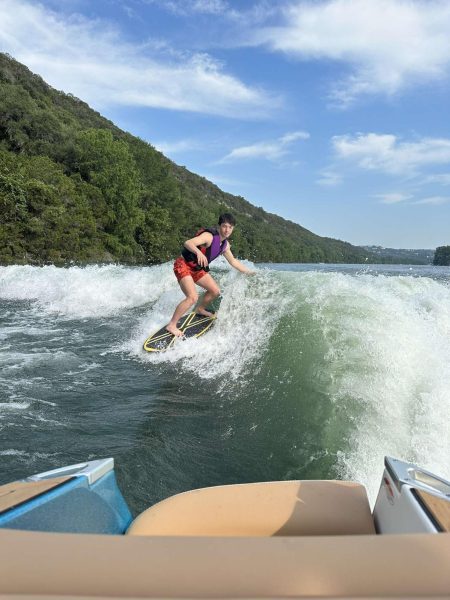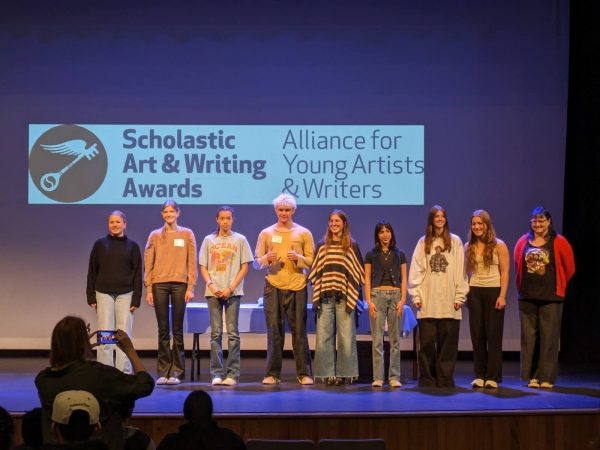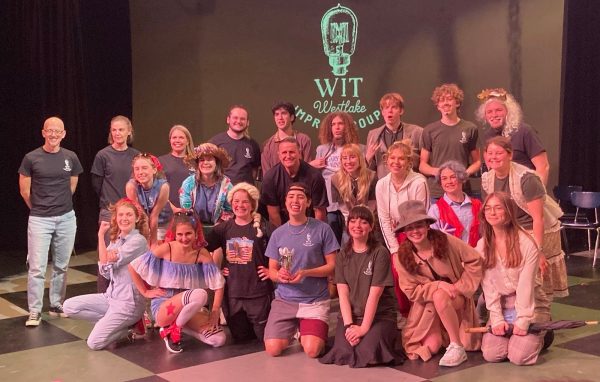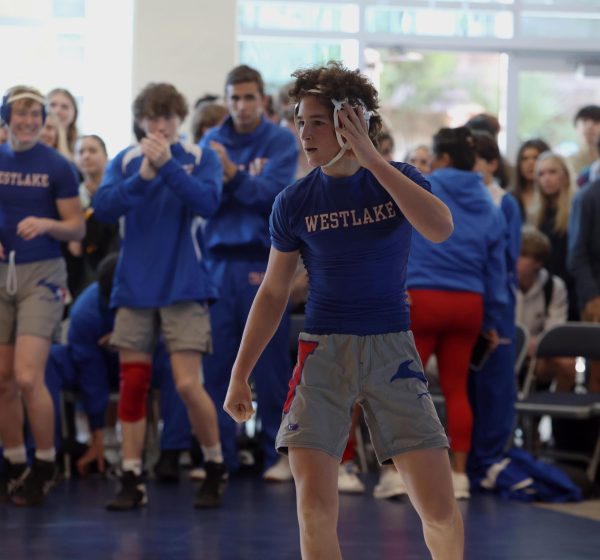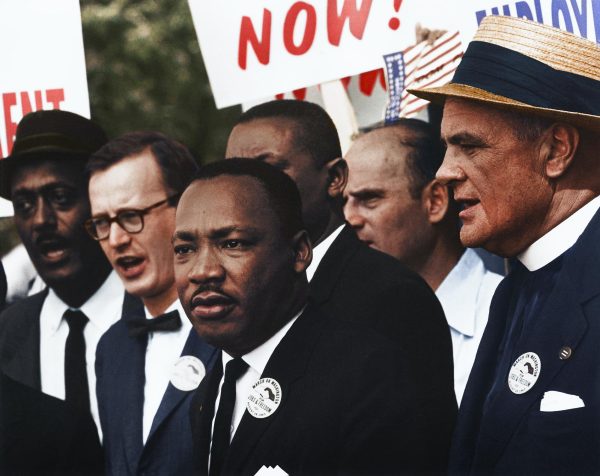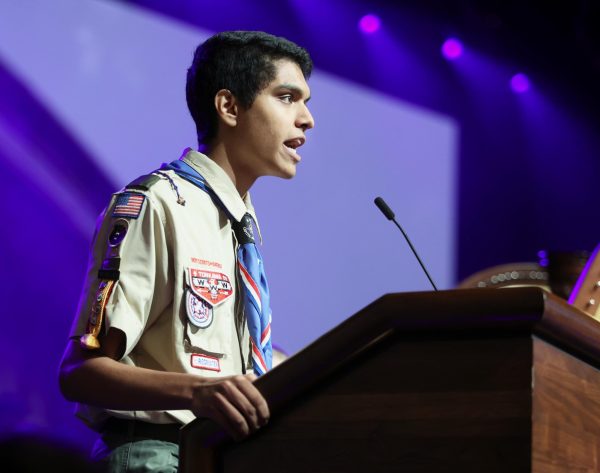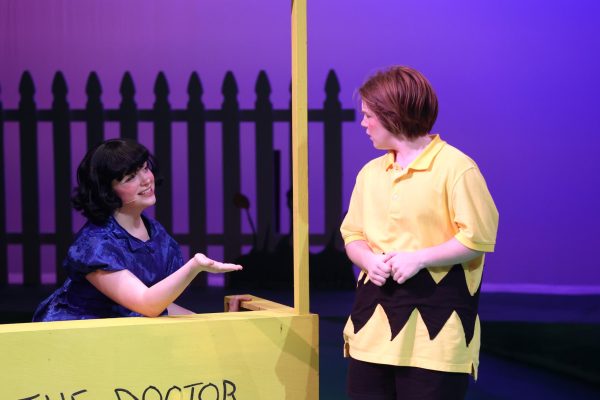AP Environmental Science undertakes series of progressive projects
Hoping to start an annual spring semester tradition, AP Environmental Science teacher Lauren Gehman has created end-of-the-year assignments for all five of her periods. Every class is responsible for formulating and executing projects intended to help Westlake become a more ecologically friendly and responsible school. Here’s a basic overview for each project so that you can see how the students have impacted their community. — Michael Wiggin
Lauren Gehman: First period is making a greener space in the courtyard that’s not used [to the right of the library]. They want to make it more usable and make people want to be in that area with nature. They’re very specifically making it prettier by adding yuccas, mulching the area and making an art mural. [In addition, they’re] putting a bench in the location so it can be used and a trash bin next to it so people can sit down there, hang out and eat.
LG: Second period is all about increasing the recycling that’s happening on campus and making sure that it’s more consistently recycled as well as expanding [recycling] out into the stadiums and including paper recycling. They’re making sure that every classroom has a blue recycling bin for plastics and a paper bin for paper. By assigning different clubs and sports teams to volunteer and empty the recycling bins each week, they’re changing up how recycling gets done.
LG: Third period actually had the most difficulty out of everyone because they picked a project that is very hard to accomplish — they tried to get the local restaurants in the surrounding communities to add recycling and to change out their non-recyclables with recyclables. Getting people to change up their business model and get them to lose money in only a four-month stretch is impossible. So they changed their project in the last two weeks and decided to do a campaign to get people to reuse and reduce the amount of plastic or water bottles they use. They’re telling people to re-up their cup, [that is] bring in a cup that can be reused.
LG: “Fifth period is doing an electronic waste drive. They decided to create awareness on how people can recycle their hazardous waste so it doesn’t end up in a landfill and provided two bins in the front office and the Chap Court for students to dump their e-waste. They also distributed fliers that said to take their e-waste to the Austin Resource Recovery Center near the airport.
LG: Seventh period wanted to make people aware of the fact that our school can compost. Even though nobody knows it’s there, we have compost bins. Go figure. So they’ve been trying to add signs here or there saying, ‘This is compostable’ or, ‘You should compost,’ so people in cafeterias know that they have that option. [They’re also] making sure that our school and our maintenance operations take out the bins every single day.

![Festival goers gather on the Zilker Park lawn for a day of kite flying, entertainment, and food at the ABC KiteFest Sunday, April 14. “It was super fun to watch people flying their kites and also fly my own,” Tucker said. “[KiteFest] is always a highlight of my year and I plan to return every year moving forward.”](https://westlakefeatherduster.com/wp-content/uploads/2024/04/kite-600x450.jpeg)
![The Wind Ensemble, conducted by director Kerry Taylor, plays in the Performing Arts Center Wednesday, Mar 27. “Some challenges we face with our music are always solved through our weekly sectionals,” Qadan said. “They are helpful because it gives each section the chance to work with one another on their weakest part of the music and fix everything that needs to be [fixed].”](https://westlakefeatherduster.com/wp-content/uploads/2024/04/band-1-600x450.jpeg)
